
- Average Rating:
- Not yet rated
- Topic Areas:
- Hypnosis | Clinical Demonstrations | Brief Therapy
- Categories:
- Brief Therapy Conference | Brief Therapy Conference 2014
- Faculty:
- Michael Yapko, PhD
- Course Levels:
- Master Degree or Higher in Health-Related Field
- Duration:
- 1:00:00
- Format:
- Audio and Video
- Original Program Date:
- Dec 13, 2014
- Short Description:
- Contrary to the popular mythology, what makes hypnosis valuable is its ability as a tool to create a safe and comfortable context for self-exploration. As a direct consequence, people routinely find overlooked or dormant resources that would help empower them to not only feel better but be better. In this demonstration, we'll explore how hypnosis might be helpful in increasing a sense of personal empowerment.
- Price:
-
Sale is $29.00
price reduced from Base Price - $59.00
Tags: Hypnosis Brief Therapy

- Average Rating:
- Not yet rated
- Topic Areas:
- Clinical Demonstrations | Feedback Informed Treatment (FIT) | Relationships | Therapeutic Relationship | Tailoring | Therapist Development
- Categories:
- Brief Therapy Conference | Brief Therapy Conference 2014
- Faculty:
- Michael Yapko, PhD
- Course Levels:
- Master Degree or Higher in Health-Related Field
- Duration:
- 55:44
- Format:
- Audio and Video
- Original Program Date:
- Dec 13, 2014
- Short Description:
- This demonstration will feature Feedback-Informed Treatment, a pantheoretical approach for evaluating and improving the quality and effectiveness of behavioral health services. It involves routinely and formally soliciting feedback from consumers regarding the therapeutic alliance and outcome of care and using the resulting information to inform and tailor service delivery.
- Price:
-
Sale is $29.00
price reduced from Base Price - $59.00
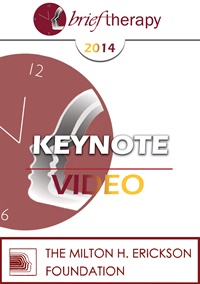
- Average Rating:
- Not yet rated
- Topic Areas:
- Attachment | Keynotes | Psychotherapy | Brief Therapy | Couples Therapy
- Categories:
- Brief Therapy Conference | Brief Therapy Conference 2014
- Faculty:
- Sue Johnson, EdD
- Course Levels:
- Master Degree or Higher in Health-Related Field
- Duration:
- 1:03:37
- Format:
- Audio and Video
- Original Program Date:
- Dec 11, 2014
- Short Description:
- There are currently over 400 specific approaches to psychotherapy and many therapeutic tribes. Attachment theory and science with its intrapsychic and relational focus offers the therapist a broad, integrative but systematic guide to the nature of dysfunction and health and how to move individuals, couples and families from one to the other. This presentation will offer a guide as to how this science can help to make our sessions relevant and on target in terms of leading to better affect regulation, cognitive coherence and supportive, stable relationships.
- Price:
-
Sale is $29.00
price reduced from Base Price - $59.00
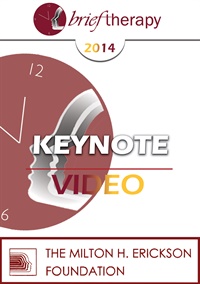
- Average Rating:
- Not yet rated
- Topic Areas:
- Keynotes | Trauma | Post-Traumatic Stress Disorder (PTSD) | Brief Therapy
- Categories:
- Brief Therapy Conference | Brief Therapy Conference 2014
- Faculty:
- Donald Meichenbaum, PhD
- Course Levels:
- Master Degree or Higher in Health-Related Field
- Duration:
- 58:02
- Format:
- Audio and Video
- Original Program Date:
- Dec 12, 2014
- Short Description:
- Following the exposure to traumatic and victimizing experiences, 75 % of individuals will be impacted, but they go onto evidence resilience and in some instances post traumatic growth. In contrast, 25 % will evidence PSTD and persistent adjustment disorders. In this presentation, Dr. Meichenbaum will discuss what distinguishes these two groups and the implications for treatment decision making. He will use a Constructive Narrative Perspective to demonstrate how to bolster client's resilience.
- Price:
-
Sale is $29.00
price reduced from Base Price - $59.00
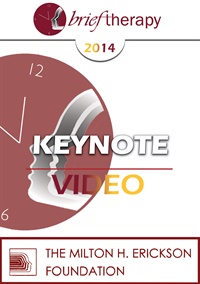
- Average Rating:
- Not yet rated
- Topic Areas:
- Keynotes | Couples Therapy | Intimacy | Sex and Sexuality | Attachment | Love
- Categories:
- Brief Therapy Conference | Brief Therapy Conference 2014
- Faculty:
- Esther Perel, MA, LMFT
- Course Levels:
- Master Degree or Higher in Health-Related Field
- Duration:
- 59:13
- Format:
- Audio and Video
- Original Program Date:
- Dec 13, 2014
- Short Description:
- Based on Perel’s Mating in Captivity, this bold take on intimacy and sex grapples with the obstacles and anxieties that arise when our need for secure love conflicts with our pursuit of passion. We will tackle eroticism as a quality of vitality in relationships extending far beyond mere sexuality and show how reconciling these two competing needs is at the heart of sustaining desire over time.
- Price:
-
Sale is $29.00
price reduced from Base Price - $59.00
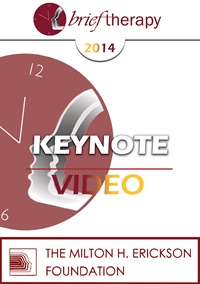
- Average Rating:
- Not yet rated
- Topic Areas:
- Keynotes | Trauma | Brief Therapy | Neuroscience
- Categories:
- Brief Therapy Conference | Brief Therapy Conference 2014
- Faculty:
- Bessel van der Kolk, MD
- Course Levels:
- Master Degree or Higher in Health-Related Field
- Duration:
- 1:02:01
- Format:
- Audio and Video
- Original Program Date:
- Dec 14, 2014
- Short Description:
- Neuroimaging and EEG measures of traumatized individuals show significant changes that must be taken into account for treatment to be effective.
- Price:
-
Sale is $29.00
price reduced from Base Price - $59.00
Tags: Brief Therapy Neuroscience Trauma
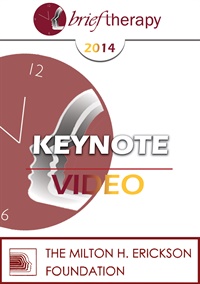
- Average Rating:
- Not yet rated
- Topic Areas:
- Keynotes | Post-Traumatic Stress Disorder (PTSD) | Brief Therapy | Trauma
- Categories:
- Brief Therapy Conference | Brief Therapy Conference 2014
- Faculty:
- Philip Zimbardo, PhD
- Course Levels:
- Master Degree or Higher in Health-Related Field
- Duration:
- 2:05:42
- Format:
- Audio and Video
- Original Program Date:
- Dec 14, 2014
- Short Description:
- For over 20 years, Dr. Zimbardo has researched the power of relationship with time has on our lives. He has co-authored two published books on the topic, The Time Paradox and The Time Cure, and developed the Zimbardo Time Perspective Inventory (ZTPI) which has been translated into over 24 languages and validated globally. his talk will review the major research on time perspective and introduce his work with Dr. Richard Sword and Rosemary Sword on Time Perspective Therapy, a brief therapy intervention to treat Post-Traumatic Stress Disorder.
- Price:
-
Sale is $29.00
price reduced from Base Price - $59.00

- Average Rating:
- Not yet rated
- Topic Areas:
- Clinical Demonstrations | Experiential Therapy | Brief Therapy
- Categories:
- Brief Therapy Conference | Brief Therapy Conference 2016
- Faculty:
- Jeffrey Zeig, PhD
- Course Levels:
- Master Degree or Higher in Health-Related Field
- Duration:
- 1:03:40
- Format:
- Audio and Video
- Original Program Date:
- Dec 10, 2016
- Short Description:
- Using experiential methods promotes adaptive states in clients. Experiential methods can be the center point of therapy. Educational Objectives: 1. Describe the process of “signifying.” 2. Describe how to use “signifying” strategically.
- Price:
- $0.00 - $29.00
Tags: Experiential Brief Therapy
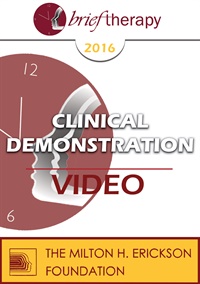
- Average Rating:
- Not yet rated
- Topic Areas:
- Clinical Demonstrations | Brief Therapy | Hypnosis | Psychotherapy
- Categories:
- Brief Therapy Conference | Brief Therapy Conference 2016
- Faculty:
- Ernest Rossi, PhD | Richard Hill, MBMSc, MEd, MA
- Course Levels:
- Master Degree or Higher in Health-Related Field
- Duration:
- 1:00:41
- Format:
- Audio and Video
- Original Program Date:
- Dec 10, 2016
- Short Description:
- We illustrate how easy it is to learn and apply the quantum dynamics of Rossi’s Hand Polarity Techniques to facilitate brief psychotherapy and hypnosis. First we will engage the entire audience in a live demonstration of how to experience, recognize and enhance the quantum dynamics our natural 4-stage creative cycle of problem solving and healing in everyday life.
- Price:
-
Sale is $29.00
price reduced from Base Price - $59.00
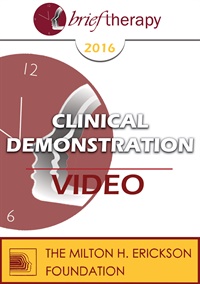
- Average Rating:
- Not yet rated
- Topic Areas:
- Psychotherapy | Clinical Demonstrations | Generative Psychotherapy | Unconscious Processes
- Categories:
- Brief Therapy Conference | Brief Therapy Conference 2016
- Faculty:
- Stephen Gilligan, PhD
- Course Levels:
- Master Degree or Higher in Health-Related Field
- Duration:
- 58:40
- Format:
- Audio and Video
- Original Program Date:
- Dec 10, 2016
- Short Description:
- Problems/Symptoms may be viewed as attempts by the creative unconscious to bring transformation and healing. A generative state can allow that transformation to be realized.
- Price:
-
Sale is $29.00
price reduced from Base Price - $59.00
Please wait ...

